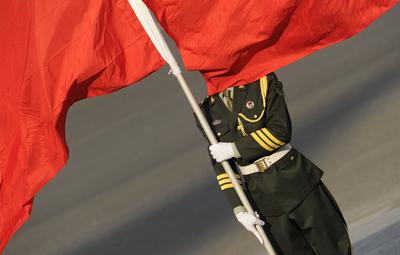Even though there is a certain economic gap between South Africa and other BRIC countries, the meaning of South African accession carries geopolitical meaning. Now that BRIC has become ‘BRICS,’ the group’s members reach across Asia, Europe, Latin America and Africa, linking emerging powers together and raising the voices of developing countries as a whole in the world.
As for the significance of China-South Africa relations go, there is no doubt that the smooth development of bilateral relations between the two countries has served as a good foundation for South Africa’s accession to BRIC. The relationship between South Africa and China has been developing since diplomatic ties were established in early 1998. While its bilateral trade with the EU and other traditional trading partners slumped after the financial crisis, South Africa’s trade with China and other emerging economies has remained sound in recent years. In 2009, China became South Africa’s largest trading partner, and bilateral trade reached $16.06 billion (totaling $10.8 billion in the first half of 2010), up 56 per cent on the previous year. Meanwhile, China has become a major investor in South Africa’s key areas, like mining and financial services.
Shortly before South Africa’s formal accession to BRIC, President Zuma led the largest ever delegation — 13 cabinet ministers and more than 350 business executives and entrepreneurs — to Beijing. Relations with China were elevated from a ‘strategic partnership’ to a ‘comprehensive strategic partnership,’ ushering in a new era of alliance. Two months later, Chinese Deputy President Xi Jinping paid a visit to South Africa and signed a series of bilateral economic agreements, covering areas that included clean energy, mining, finance and infrastructure.
As Africa’s largest economy, as well as Africa’s ‘superpower,’ in terms of political and diplomatic influence, South Africa’s accession will strengthen communication and cooperation between BRIC countries and the whole African continent. According to South African media analyses, closer cooperation with BRIC was an inevitable result of BRIC’s increasing influence on the African continent, and will help fuel economic development and poverty alleviation in both South Africa and other parts of the continent.
Since South Africa is the largest foreign investor in many African countries, a close China-South Africa relationship will help improve the external investment environment on the continent and promote post-crisis recovery and growth. In addition, strengthening relations with South Africa doesn’t mean those with other African countries will be weakened. Just as the take-off of the Four Asian Tigers played a major role in the world economy in the 1970s and 1980s, the strong economic links China has with South Africa and other African economic powers can not only boost expansion of Sino-African relations overall but also set an example for, as well as guide and lead, the establishment of a new type of strategic partnership between China and Africa as a whole.
He Wenping is Professor and Director of African Studies Section at the Institute of West Asian & African Studies (IWAAS), Chinese Academy of Social Sciences (CASS).

